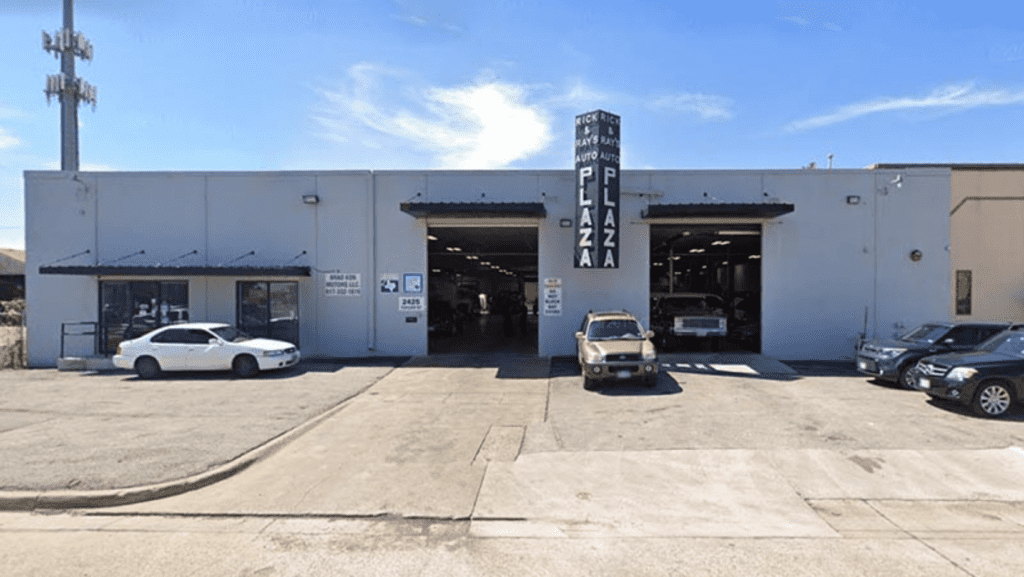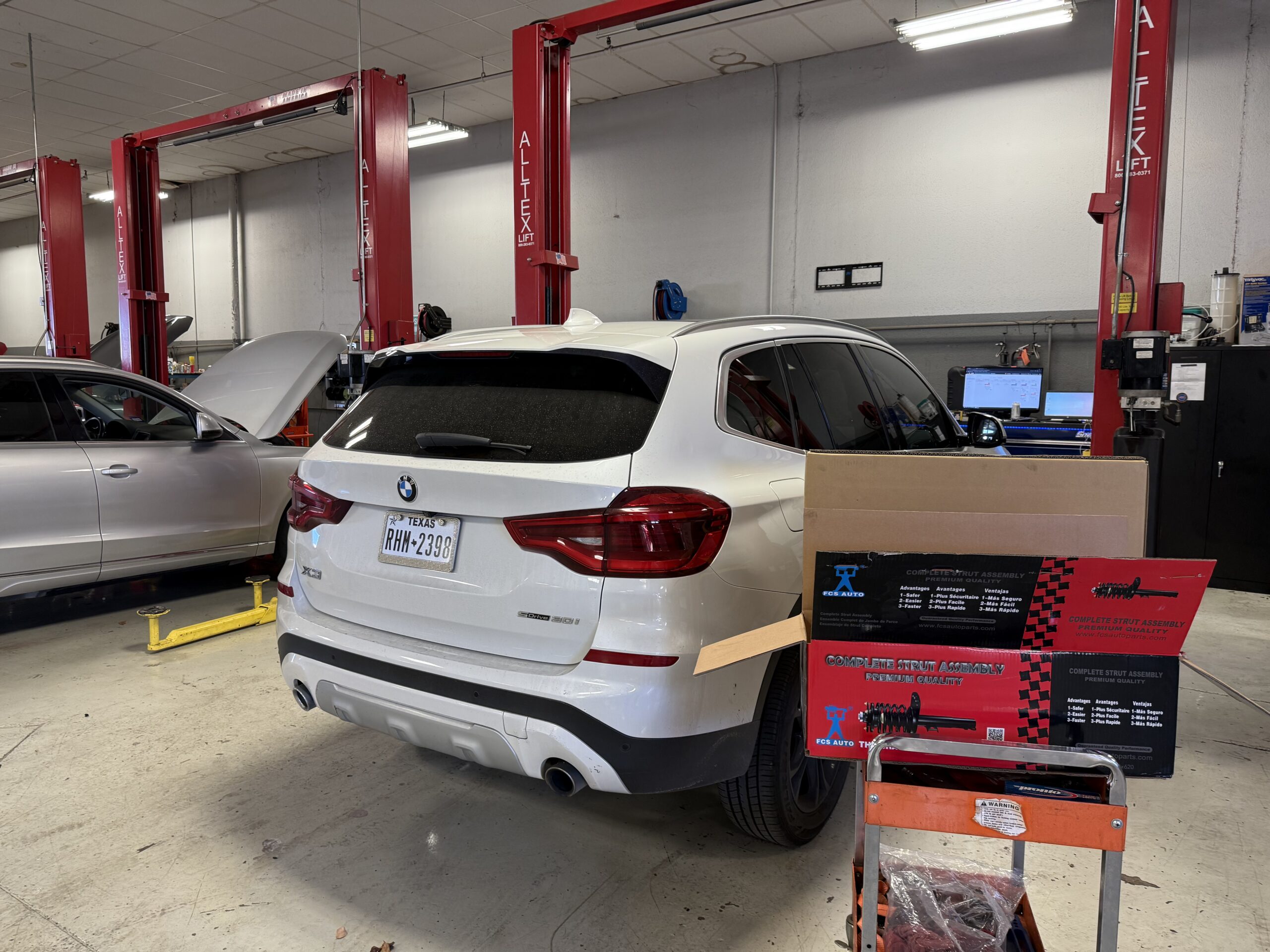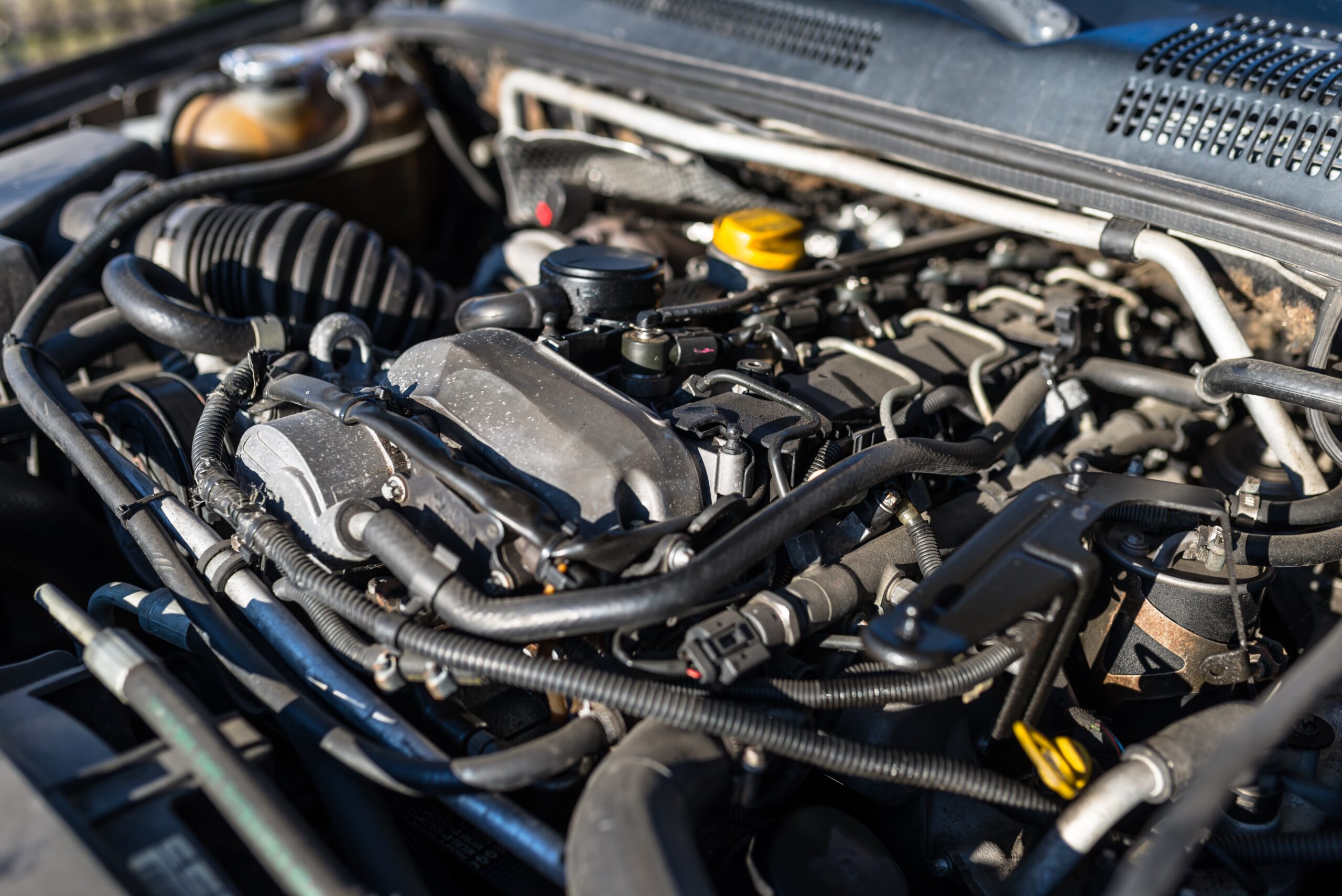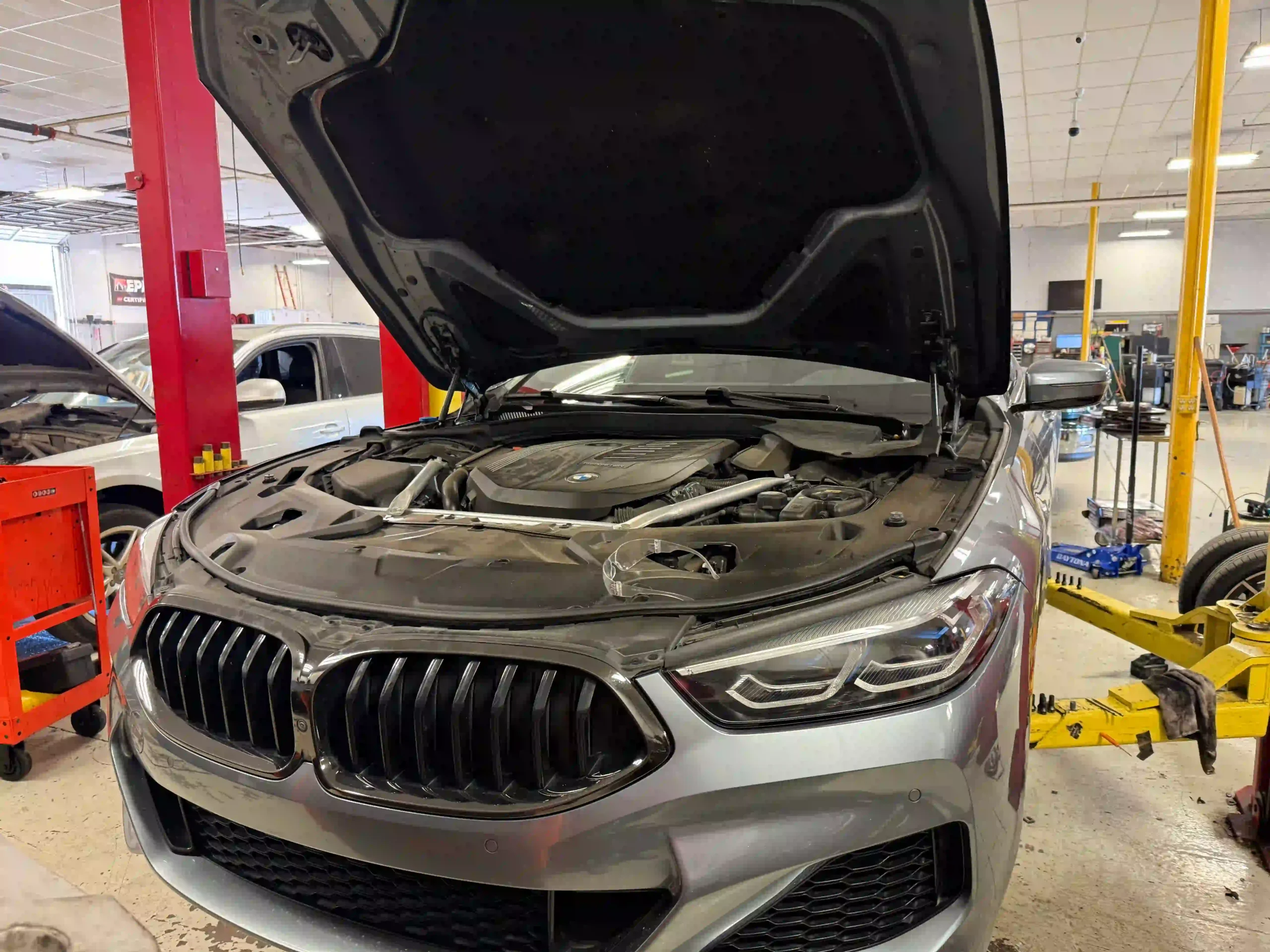BMWs are built with advanced cooling systems, but that doesn’t make them immune to overheating. Whether you’re stuck in traffic on a summer day or your system has a deeper mechanical issue, it’s critical to act fast before serious engine damage sets in.
Here’s a breakdown of what causes overheating, how to stop it safely, what to look for, and how to prevent it in the future.
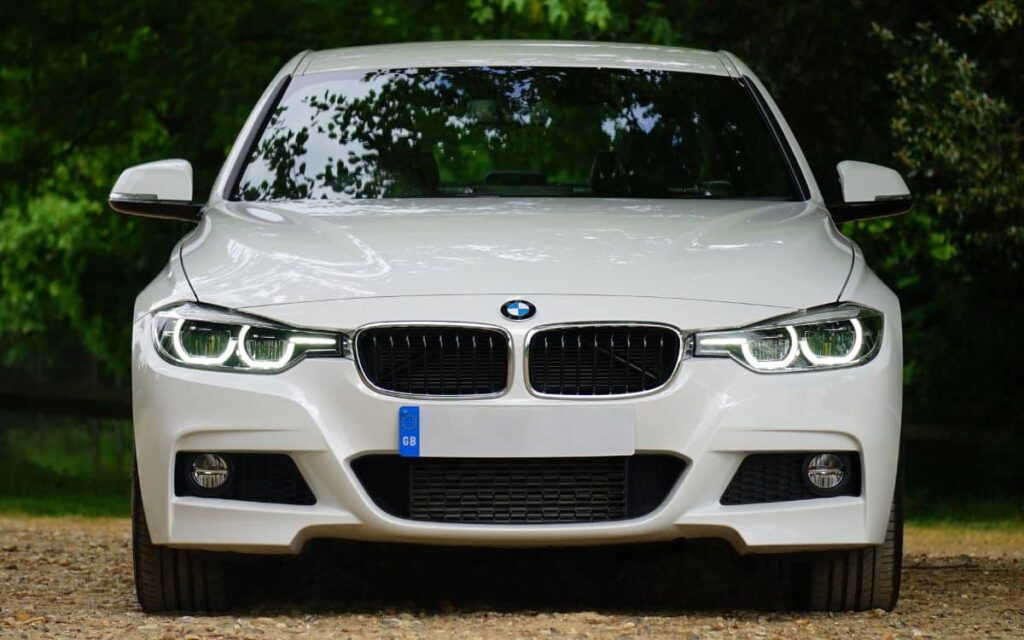
Immediate Steps: What to Do If Your BMW Is Overheating
1. Turn off the A/C, turn on the heater
Yes, it’ll get hot in the cabin. But this pulls heat away from the engine and into the car’s interior, buying your engine time.
2. Pull over ASAP and shut off the engine
Stop as soon as it’s safe. Do not keep driving “just a little farther.” That’s how you blow a head gasket or warp the engine block.
3. Pop the hood, but don’t touch anything yet
Wait at least 15 minutes before opening the hood. Let things cool off to avoid burns or pressurized coolant spraying everywhere.
4. Check the coolant reservoir
If you know what you’re doing and the engine is cool, check the coolant level in the plastic overflow tank. If it’s low and you have coolant on hand, top it off. Use only BMW-approved coolant (never just water, unless it’s an emergency).
5. Call for a tow if needed
If the warning light stays on, you see steam, or the car’s not running right, don’t risk it. Get it towed to a qualified BMW repair shop.
Warning Signs Your BMW Is Overheating
Overheating doesn’t always happen suddenly, and your BMW will usually send out warnings before things get critical. The key is knowing what to look for and acting fast before serious damage occurs.
If you catch the issue early, you might avoid a tow, a ruined engine, or a $5,000 repair bill. Miss the signs, and you could be looking at a blown head gasket or worse.
Here are the most common symptoms of an overheating BMW:
- Temperature Gauge in the Red
If the needle hits the red zone or your digital display flashes a high temperature warning, your engine is running dangerously hot. Stop immediately. - Steam or Smoke from the Hood
Steam usually means boiling coolant. Gray or blue smoke could signal burning oil or a blown head gasket. Either way, pull over right away. - Burning Smell
A sweet smell = leaking coolant. A burnt rubber or plastic smell = overheated hoses, wires, or gaskets. These smells often show up before you see visible damage. - Coolant Leaks or Puddles Under the Car
Bright green, pink, orange, or blue liquid under your car usually means a coolant leak. Even small leaks can lead to overheating quickly. - Loss of Power or Rough Idling
If the engine stumbles, loses acceleration, or idles roughly, overheating may be affecting combustion or triggering a limp mode. - High Revs at Idle
A high idle or loud fan noise when parked can mean the engine is overworking to stay cool. It’s often a sign of early overheating. - Warning Lights or Dashboard Messages
Your BMW may show a temperature warning icon, an “Engine Overheating” message, or a check engine light. These alerts are real; don’t ignore them.
If you notice any of these, stop driving immediately. Shut the engine off, let it cool, and don’t restart until the cause is addressed. Overheating once is a warning, and overheating twice could total your engine.
Why BMWs Overheat: Common Causes
Even with advanced cooling systems, BMWs are still vulnerable to overheating. Here’s what typically goes wrong:
- Coolant Leak
Leaks from hoses, the radiator, or the water pump reduce coolant levels and pressure, leading to quick overheating. - Failed Water Pump
Without circulation, the coolant can’t do its job. BMW water pumps are known to fail, especially due to plastic impeller wear. - Stuck Thermostat
If the thermostat doesn’t open, hot coolant stays trapped in the engine. That’s a fast track to overheating. - Faulty Radiator Fan
If the fan stops working, especially at low speeds or idle, the radiator can’t shed enough heat. - Air Pockets in the Cooling System
Air trapped after coolant changes disrupts flow and creates hot spots. BMWs often need a professional bleed. - Clogged Radiator
Debris or internal corrosion can block coolant flow, especially in older models. - Blown Head Gasket
In the worst-case scenario, the coolant leaks into the engine, leading to white smoke, milky oil, and major damage.
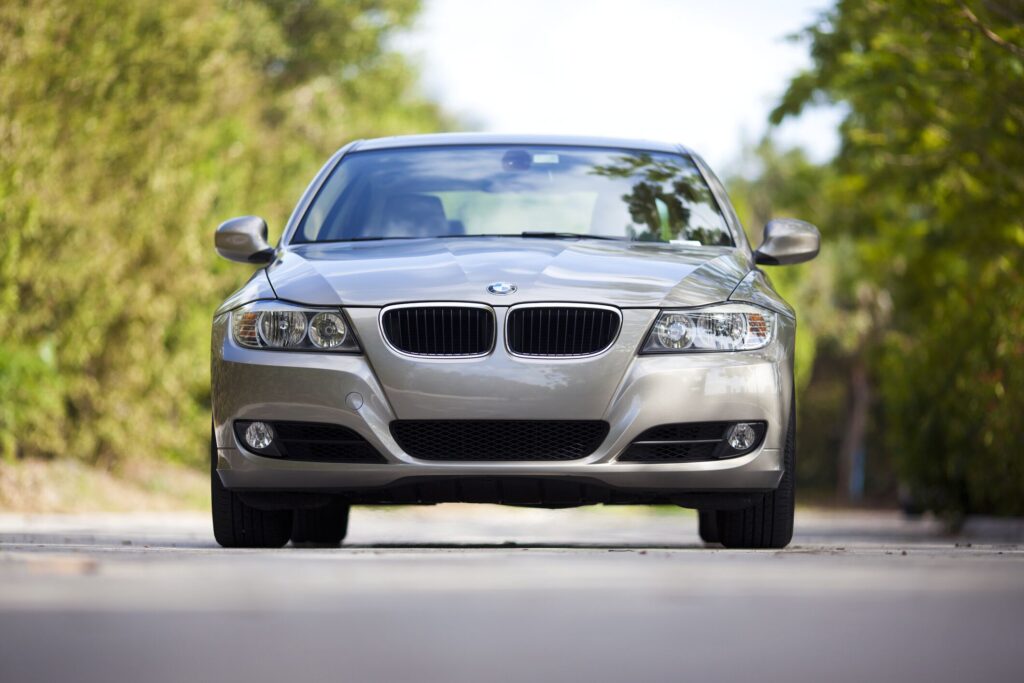
Understand the Basics: How BMW Cooling Systems Work
Every BMW uses a closed-loop cooling system made up of:
- Coolant (antifreeze + water): Absorbs and transfers heat
- Radiator: Cools the hot coolant with air
- Water pump: Circulates coolant throughout the engine
- Thermostat: Opens and closes based on temperature
- Cooling fan: Adds airflow when needed, especially at low speeds
- Coolant reservoir: Expands and contracts with temperature changes
- Hoses: Carry coolant between all the components
All of these parts need to work together. If one fails, your BMW is at risk.
How to Prevent Overheating in the First Place
Most overheating issues are preventable. Here’s what you can do:
- Check coolant levels monthly
- Inspect hoses and belts at every oil change
- Flush the coolant system every 2–3 years (or per BMW’s schedule)
- Watch for early leaks or drips
- Pay attention to odd smells, dashboard lights, or temperature spikes
- Use only BMW-approved coolant and parts
If your BMW has 60,000+ miles and the water pump and thermostat haven’t been replaced, you’re on borrowed time. Many BMW owners proactively replace them around 60k–90k miles to avoid trouble.
Don’t Ignore an Overheating BMW
Letting your engine overheat, even once, can lead to serious damage like a blown head gasket, warped cylinder head, or complete engine failure. Repairs often start around $3,000 and only go up from there.
If your BMW runs hot, handle it immediately. The longer you wait, the more expensive it becomes. Rick and Ray’s Auto Plaza is here to help. Our ASE-certified technicians specialize in diagnosing and fixing BMW cooling problems quickly and correctly.
Call us now or schedule your appointment online. Protect your engine before it’s too late.
